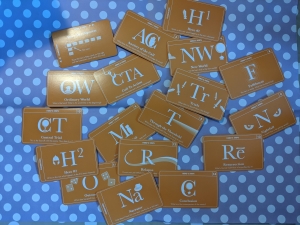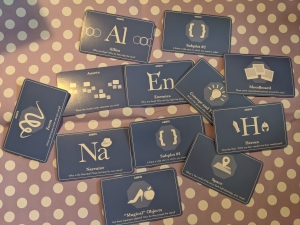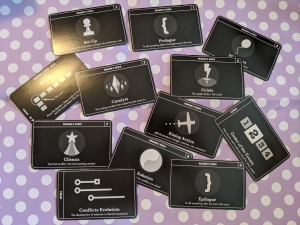I’m currently writing my tenth book and I’m a plotter through and through, but, I never stop learning. So when my friend and fellow writer Belinda Missen told me about this amazing writing tool from Fabula, I had to check it out. In fact, I added it to my birthday wish list last year and let me tell you, it is awesome! Here’s why…
Sign up to my mailing list and get a FREE short story called The First Date!
[wpforms id=”2181″]
If you check out www.fabuladeck.com, they describe the deck as a ‘framework for writers’ and it definitely is. The pack contains 11 Asset cards, 18 Hero’s Development cards and 11 Editing cards, plus a booklet with instructions. It guides you through exactly what you need to do which is really helpful for anyone who’s approaching their first book. But even more experienced writers will find it useful because it can be so hard to take that mass of idea in your ideas and get them in order on the page!

1. Structure
The Hero’s Steps cards are orange and help you organise the scenes of your story. They cover things like the hero’s ordinary world (before stuff starts happening), the call to action (the thing that makes them go on their metaphorical journey), and the New World, plus heaps more in between.
This really helps to ensure your story has a proper structure and that you hit all the different ‘beats’ expected in a rounded, complete story.

2. Character
The blue Assets cards cover your hero, their enemies, subplots and themes. Identifying these at an early stage can really help you keep your story on track and ensure your characters are well rounded. Many a time I’ve had minor characters who are just there to move the story on for the Main Character and need fleshing out more. These cards help you look at each character and identify their role in the protagonist’s story. It gives real depth to your writing.
And knowing the themes of your story can really help in keeping that message clear as you get into the nitty gritty of writing as well as when you come to pitching to agents and publishers.

3. Writing and Editing
The 11 Editing Cards are a brilliant way of making sure your writing has stayed on track during the messy first draft and not gone wandering off of its own accord! They’re also useful to look at before you start and as you go.
One of the things I like best is that they’re split into the Three Act Structure which is a well-known way to structure novels. They haven’t tried to reinvent the wheel, but they have given a bit more detail to help guide you.
I’ve been using the Fabula deck for my last few stories and it really helps to give me confidence that the story will work. I know before I start writing that it has enough legs to be a full length novel with peaks and troughs and a lot of substance.
If you haven’t tried it yet, I’d really recommend that you do. It’s now one of my favourite plotting tools and so many new ideas have sprung up from these handy little cards!
Check it out at www.fabuladeck.com!
PS. This is not a paid ad, this is purely my personal opinion.
Don’t forget to sign up to my mailing list for behind the scenes gossip and a FREE short story!
[wpforms id=”2181″]
